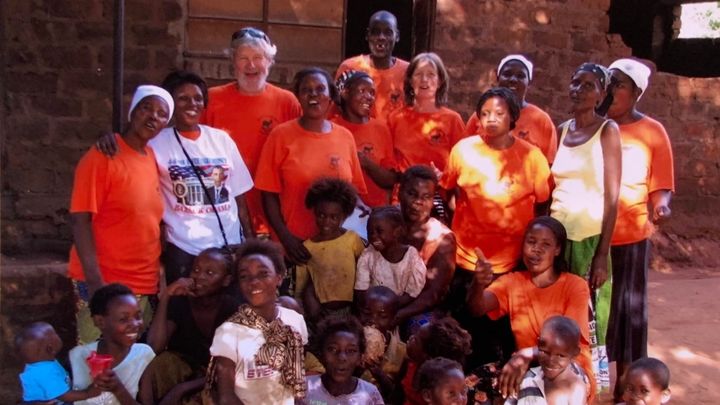
Mukuni Village Goat Farm
Donation protected

In 2008, Emily and her family took a summer vacation to Zambia. While there, they developed a lasting relationship with the local villagers in the Mukuni Chiefdom. In consultation with the local health clinic, her parents Margaret & Casey started a co-op in 2010 with the purpose of providing an alternate form of nutrition to babies in the village whose mothers cannot nurse. In addition to providing goat's milk to under-nourished children, the project's other goals include reducing mother-to-child transmission of HIV, improving local business management skills, and empowering women and people who are affected by HIV.
After a slow start getting the farm off the ground and overcoming cultural hurdles about babies drinking goats' milk rather than their mothers' breast milk, the farm has become a successful and sustainable asset to the village. Over the past 9 years the farm has grown to 50 goats and they have provided nutrition to over 100 local babies, many of them for over a year. Margaret and Casey spearheaded the creation of the farm, and have continued to contribute funds to establish and maintain it, but have required extensive ownership, work, contributions, and engagement from the local villagers who run the farm day to day since ultimately it is this ownership and dedication that will enable the farm to be successful and sustainable. The volunteer staff in the village rotate through "board member" roles (such as chair, treasurer, secretary, etc.) and run the farm like a business and prepare annual reports summarizing the farm's budget and operations.


One of the greatest challenges facing the goat farm is the lack of a reliable water source. As you can see in the photo, co-op members must carry water to the animals and crops. The drought this year in the region has made the situation even worse. There is less drinking water for the people and goats, but also much lower crop production that has affected the people’s and animals' nutrition.
To help the farm continue successful operations and overcome the challenges with the water shortage, we have been coordinating with those who run the farm and village leaders about how we can contribute when we visit Mukuni in July 2019. They identified three immediate needs: more accessible and reliable water, a latrine for the preschool, and a new male goat to diversify the gene pool of the goat farm. The cost of hiring a company to drill a well and install a hand pump that the locals can operate and repair is about $4,000 USD; the cost of the Ventilated Improved Pit Latrine is $1,200, and a new purebred male goat, vaccinations, and transport to Mukuni is $350. While this a significant amount for us to fund, it's essentially an impossible sum for the local community, and we are excited to fundraise and help contribute to fill this need.
Any donation you can provide would be incredibly helpful to support our goal and the local people of the Mukuni Chiefdom. Thanks everyone for your support! This project means a lot to us and we look forward to sharing updates and photos of the farm, drilling process, and Mukuni villagers we're partnering with once we're on the ground in Zambia.



Organizer
Matthew Morrissy
Organizer
Portland, OR